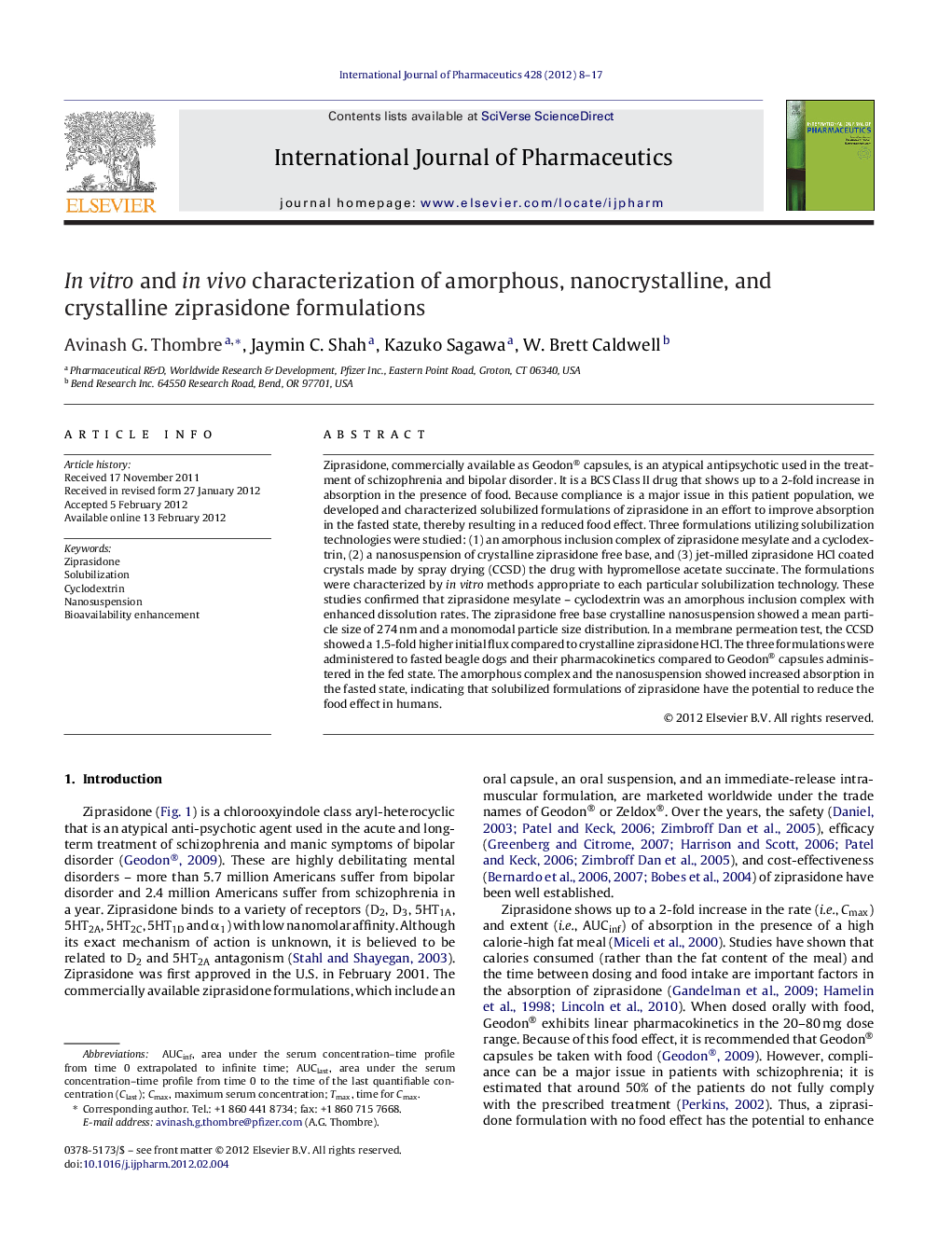| Article ID | Journal | Published Year | Pages | File Type |
|---|---|---|---|---|
| 5820937 | International Journal of Pharmaceutics | 2012 | 10 Pages |
Ziprasidone, commercially available as Geodon® capsules, is an atypical antipsychotic used in the treatment of schizophrenia and bipolar disorder. It is a BCS Class II drug that shows up to a 2-fold increase in absorption in the presence of food. Because compliance is a major issue in this patient population, we developed and characterized solubilized formulations of ziprasidone in an effort to improve absorption in the fasted state, thereby resulting in a reduced food effect. Three formulations utilizing solubilization technologies were studied: (1) an amorphous inclusion complex of ziprasidone mesylate and a cyclodextrin, (2) a nanosuspension of crystalline ziprasidone free base, and (3) jet-milled ziprasidone HCl coated crystals made by spray drying (CCSD) the drug with hypromellose acetate succinate. The formulations were characterized by in vitro methods appropriate to each particular solubilization technology. These studies confirmed that ziprasidone mesylate - cyclodextrin was an amorphous inclusion complex with enhanced dissolution rates. The ziprasidone free base crystalline nanosuspension showed a mean particle size of 274Â nm and a monomodal particle size distribution. In a membrane permeation test, the CCSD showed a 1.5-fold higher initial flux compared to crystalline ziprasidone HCl. The three formulations were administered to fasted beagle dogs and their pharmacokinetics compared to Geodon® capsules administered in the fed state. The amorphous complex and the nanosuspension showed increased absorption in the fasted state, indicating that solubilized formulations of ziprasidone have the potential to reduce the food effect in humans.
Graphical abstractDownload high-res image (106KB)Download full-size image
